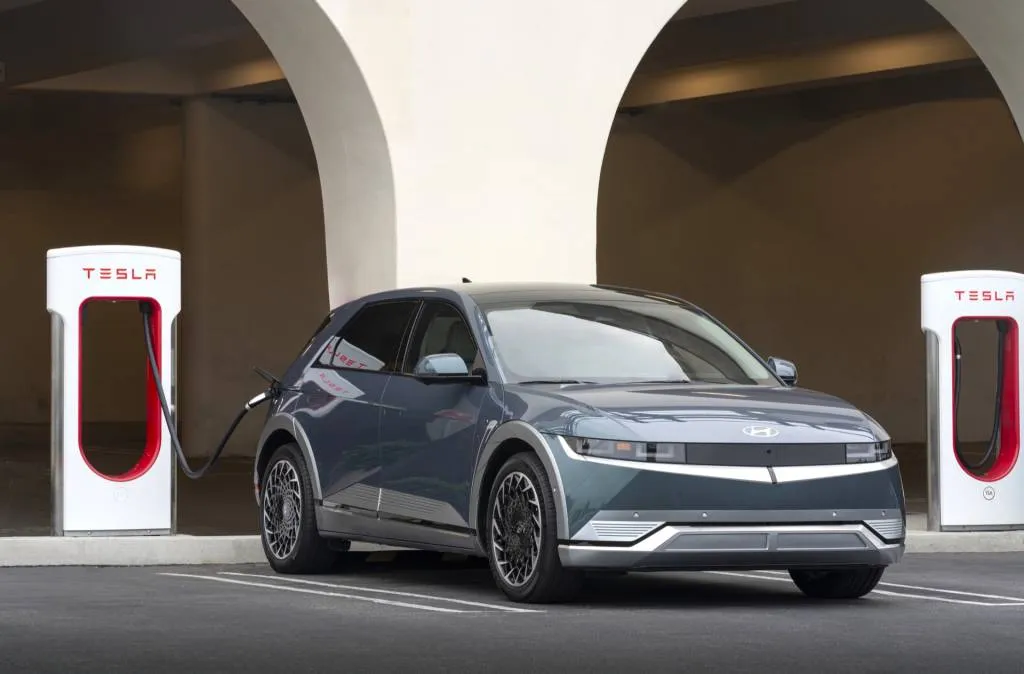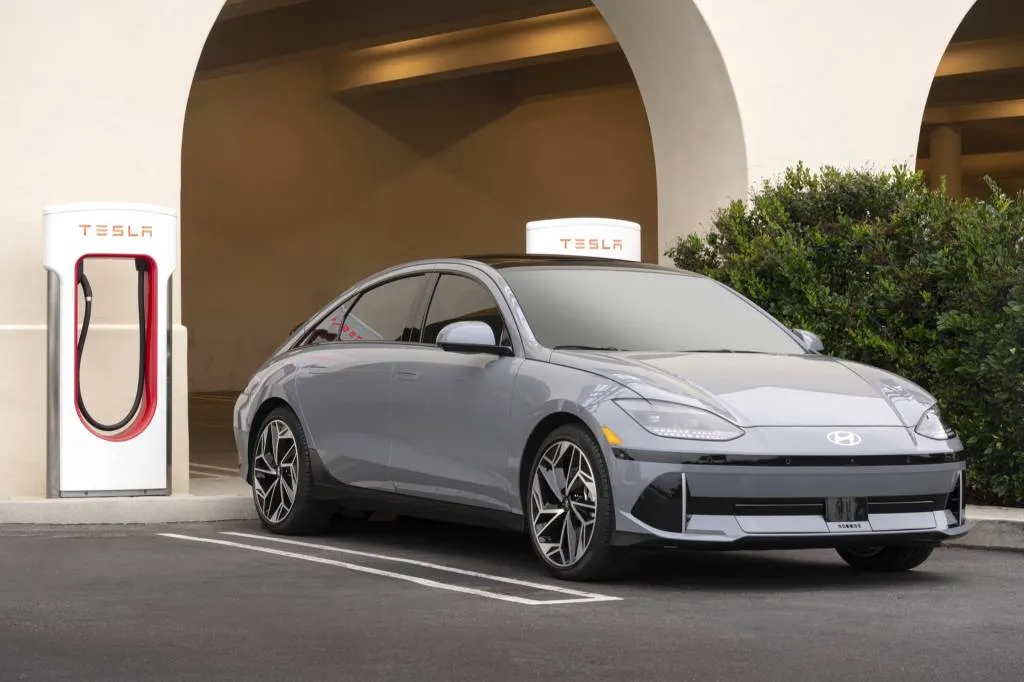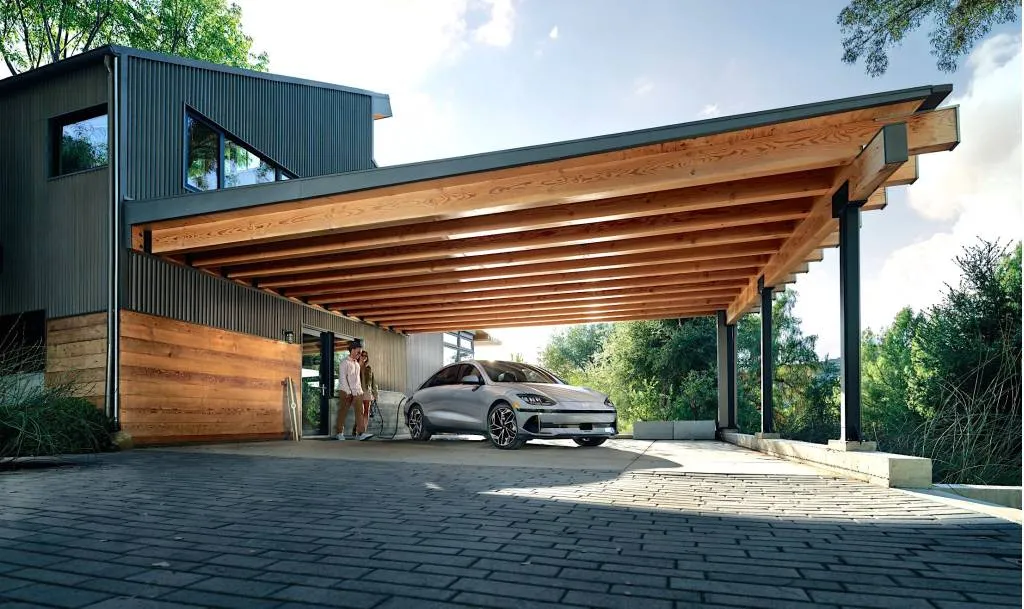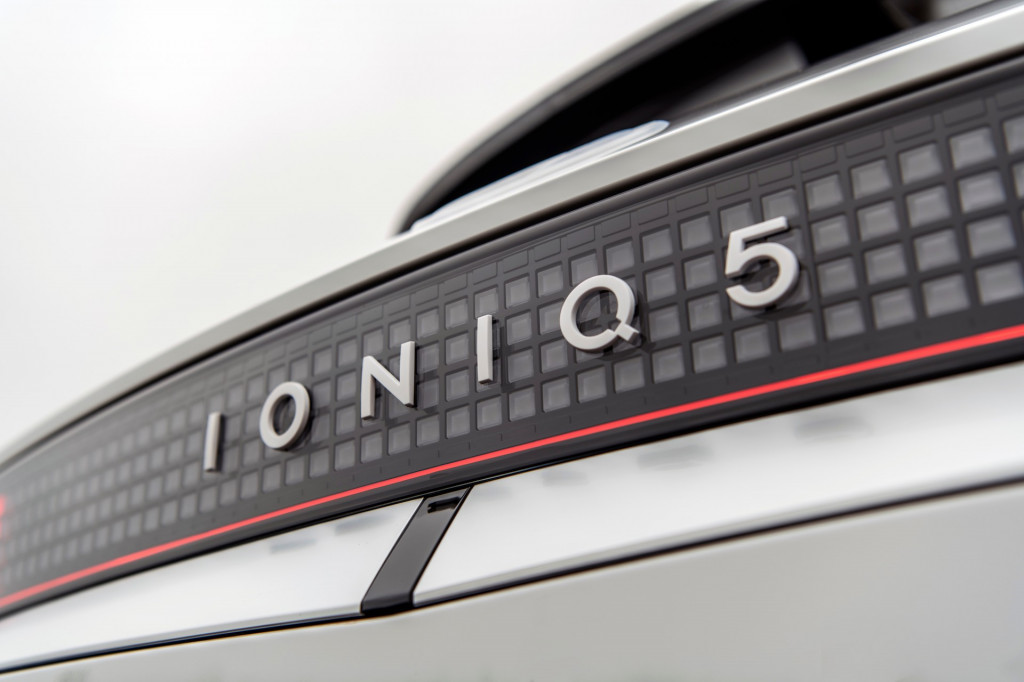Hyundai has announced that it will adopt Tesla’s North American Charging Standard (NACS) for EVs in the U.S. and Canada.
The change applies to all-new and refreshed Hyundai EVs, starting in the fourth quarter of 2024, Hyundai Motor North America explained in a Thursday press release, with Canada set to follow in the first half of 2025. The Genesis brand made a similar confirmation, with Kia following a short time later.
The company says that its EVs with NACS will gain access to more than 12,000 Tesla Superchargers in North America.
Not all Tesla Superchargers will support non-Tesla EVs with CCS. Tesla’s V2 hardware will likely only ever work with Tesla vehicles, while the vast majority of Superchargers might charge at lower-than-ideal rates when plugged into Hyundai’s leading-edge Ioniq 5 and Ioniq 6 EVs—as their super-fast 800-volt charging isn’t supported by V3.

Hyundai at Tesla Supercharger

Hyundai at Tesla Supercharger
Thus, the usefulness of the Supercharger network may depend on how rapidly Tesla deploys 800-watt-capable V4 Superchargers—and, likely, the faster-charging Tesla Cybertruck, which will take advantage of the higher voltage.
But Hyundai suggested in a response to Green Car Reports that Tesla is on board to support its EVs' charge rates: “Tesla’s commitment to expanding its network will enhance customer access to out-of-home charging and fully support the ultra-fast charging speeds on Hyundai’s advanced Electric-Global Modular Platform (E-GMP) vehicles, including Ioniq 5 and Ioniq 6 and the upcoming Ioniq 7.”

Hyundai Ioniq 6 with ChargePoint charger
The shift will likely be accompanied by new home charging hardware. Hyundai sees the transition as complementary to the charging network from seven automakers announced in July, which is just starting to take form and doesn’t yet have a name. It’s promising 30,000 high-powered charge points, with first charger installations around the middle of next year.
The order of the NACS rollout is a bit different for Hyundai. It plans to release an adapter for its models using the Combined Charging System (CCS) for fast-charging after starting to install NACS in its cars—not before, like many other automakers that have already made a commitment to NACS.
Why are Hyundai’s adapters being staggered behind its NACS integration? The company replied to Green Car Reports: “Hyundai wants to ensure our owners have a seamless charging experience. To do so, a technology integration needs to take place. All chargers and adapters must be tested and validated for each model. As such, Tesla and Hyundai are staggering the launch as an extra quality measure.”

2023 Hyundai Ioniq 5
The list of EV brands adopting NACS now amounts to the vast majority of automakers in the U.S. EV market at present. Holdouts include BMW, Stellantis, the Volkswagen Group, and Lucid, among a few others—most of which likely need some assurance regarding 800-volt charging.
While many of those details are missing at this point, Hyundai sounds like it has found a path that allows the NACS connector plus an all-of-the-above approach—and it could amount to lots of fast-charging options for current and future EV owners.













